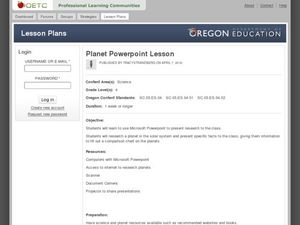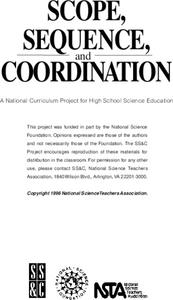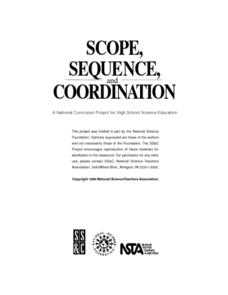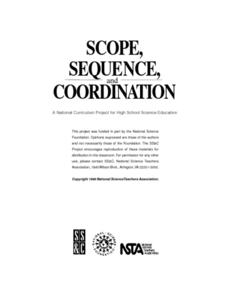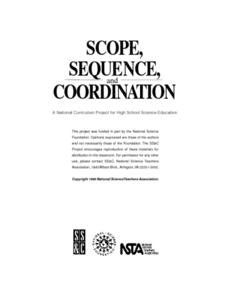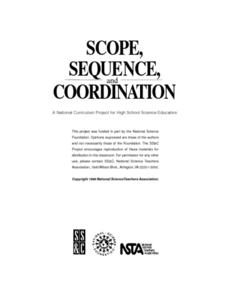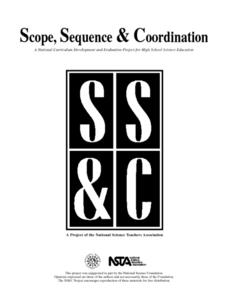Curated OER
Where Did Foods Originate? (Foods of the New World and Old World)
What do papayas, peanuts, pineapples, and potatoes have in common? Why, they are foods explorers brought back to the Old World. Young researchers use the Internet to investigate how New World explorers helped change the Old World's diet....
Curated OER
Redesign the Rover: Mars Research Year-Round
Students discuss the solar system, the planets, periods of orbit and revolution. In this space lesson students discuss the importance of the study of Mars and brainstorm ideas on how NASA might solve its Rover design problem.
Curated OER
Smithsonian Research Cuts
Students investigate the Smithsonian research projects of 2001. They complete a Webquest that explores the Smithsonian Institution website, answer discussion questions, and locate newspaper articles about research conducted by the forest...
Curated OER
Open-Ended Questions
Middle schoolers identify a topic for an open-ended question and evaluate the question. After developing ideas that lead to inquire, they investigate and research this topic on the Internet, and then create an iMovie.
Curated OER
Planet PowerPoint Lesson
Looking for a good, technology-based science lesson for your 3rd graders? This lesson is worth a look! They will utilize PowerPoint to create a presentation for the class on a planet of their choice. They also use document cameras, a...
Curated OER
Density Studies of the Earth
Density comes to life as investigators place soda cans into containers of various liquids to find if they sink or float. They layer different density liquids, compare densities of different gases, and more. A total of six different...
Curated OER
Neurons and the Nervous System
The highlight of this series is activitiy #4. Anatomy pupils examine slides of three unknown cells. With the function of the nervous system in mind, they consider the structure of each and try to guess which one is part of that system....
Curated OER
Gas Pressure, Volume, and Temperature
Physical science learners conduct a simple experiment using the heat of their hands to affect the fluid pressure. They place a balloon atop a freezing cold bottle and observe what occurs as it warms up. Both activities demonstrate how...
Curated OER
Work and Energy
The first activity may not work for your class if you don't have access to an open area of 30 meters and two cars of different masses, but the remaining activities can be used in any physics course. They all involve the investigation of...
Curated OER
Cell Structures and Their Functions
Life science learners investigate live cells. They examine wet mount slides of cyanobacteria and Elodea plants. They peer into the dynamic microscopic world of protists. Afterward, they construct a model of a cell, including rudimentary...
Curated OER
Heat and the Second Law of Thermodynamics
More than a week's worth of investigation is provided in this source. Physical science stars experiment to describe specific heat, conduction, convection, and radiation. They also discover the relationship between mechanical and thermal...
Curated OER
Heat, Temperature, and Transfer
Physical science scholars discover an array of heat sources. They experiment to connect radiation to heat. They begin to understand thermal equilibrium. Then, they test to see if mass affects the rate of temperature change. Choose a few,...
Curated OER
Electric Charge and Static Electricity
Begin with the classic static electricity demonstrations: the behavior of charged balloons and metal leaves of an electroscope. Then move on to test the electrical conductivity of various materials. Give physics pupils a charge with...
Curated OER
Acids, Bases, and Indicators
Chemistry or physical science fledglings get comfortable identifying acids and bases with a variety of pH indicators. They discover that different indicator solutions have different ranges, practice testing soil acidity, and use antacids...
Curated OER
Qualitative Aspects of Rotational Dynamics
Explanations for six different physics lab activities and five suggested assessments are contained in this resource by the National Science Teachers Association. Any combination can be used to open learners' eyes to rotational motion....
Curated OER
Cell Size and Shape; Diffusion and Osmosis Processes
Use salmon eggs as a cell model for demonstrating the movement of water over concentration gradients. Junior scientists examine the same process microscopically with an onion cell. They use a thistle tube and a semipermeable membrane to...
Curated OER
Coulomb's Law and Induced Polarization
Engage your aspiring physicists in a series of lab activities directied at demonstrating the behavior of electric force. In completing these exercises, learners will explore Coulomb's and Gauss's Laws. Well-written directions to four...
Curated OER
Wave Phenomena and the Electromagnetic Spectrum
Science learners scrutinize shadow size and quality, and experiment with diffraction. They model superposition of electromagnetic waves, and experiment with interference. These activities are action-packed and challenging for your...
Mascil Project
Sports Physiology and Statistics
If I want to build up my heart, where should I start? Science scholars use statistics in a sports physiology setting during an insightful experiment. Groups measure resting and active heart rates and develop a scatter plot that shows the...
Curated OER
Laws of Motion
Do you need some new ideas for teaching Newton's Laws of Motion? This series of activities will spring your curriculum to life! Choose from five activities to demonstrate or have your science stars perform. As a result, they will have...
Curated OER
Radioactivity, Time, and Age
Four activities demonstrate the chain reaction of nuclear fission to your physical science fans: falling dominoes, snapping mouse traps, throwing paper wads, and igniting a series of matches. They perform additional laboratory activities...
Curated OER
Watershed Documentary
Students research and produce an iMovie documentary about the human and natural history of a stream basin (watershed).
Curated OER
The Legendary Raptors
How are raptors and airplanes alike? Combine science and language arts in this fun and interactive project. Young scientists research the animal in order to design their own aircraft, and compete in a contest for farthest, fastest, and...
Curated OER
Ecology Integration Using IMovie
Amazing! Any 5th grader would be more than willing to participate in this project. Students are broken into groups, each group reads one book from a list of five. They use their book as the basis for choosing an animal and environment to...






